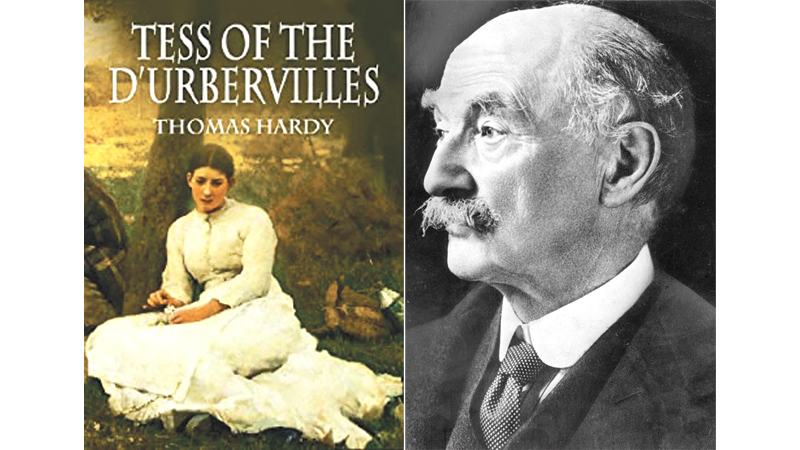Tess of the D’Urbervilles and Jude the Obscure marked the closing phase of Thomas Hardy’s career as a fiction writer. During this era, of which the novel was written, the society had its own slots to define what a woman is. If there is a woman beyond those stereotypes, that woman is considered an outcast. In Tess of the D’Urbervilles, Hardy introduces his protagonist as a phenomenal woman with anti-Victorian physical attributes. In Victorian voices, she doesn’t fit into the Victorian beauty paradigms.
Tess is dark eyed and has dark hair so that it makes her exceptional beauty in the context. Additionally, as a result of this twist in the character, Victorians regarded the novel as social criticism. they were more confused by the subtitle A Pure Woman.
Taking the subtitle into consideration, the two perspectives of the Victorians and the novelist bring out a great controversy. According to Victorians, Tess is not a pure woman because of her physical encounters with two men belonging to the upper social system. On the contrary, Tess is a pure woman because of her spiritual qualities linking with her empowered nature amid dogmatic forces towards her from the prudish Victorians.
Critical theory
Society doesn’t agree with Hardy for they value the thing called ‘the chastity’ of a woman. It is true when it comes to the Victorian standards. Because Tess gives birth to a child called Sorrow out of wedlock and is almost deported from the society. Moreover, Hardy may have tagged the title ‘A pure woman’ to view out a critical theory in his novel regarding the Victorian morals.
The novel is a tragedy and the root course for it is Tess’ so-called ‘the grand lineage’, of which Tess’ parents are proud of without knowing the bleak side of their attempt to hunt that title The D’Urbervilles. Because of their greed Tess becomes the victim. They send Tess to Alec D’Urbervilles, who is not a pure D’Urberville but a family with an acquired legacy. This very point proves that the Victorians are title-hunting in order to gain social prestige and power.
Alec’s approach on Tess is however the most life alternating thing that happened in Tess’ life. For example, it is because of Alec that she becomes a misfit among the citizens and it is because of Alec’s seduction that Tess has to break up with Angel and face a lot of misfortunes.
Hardy, being the novelist of the story, is obviously the person who makes unfair coincidences that beset Tess. One of the most throbbing coincidences in the novel is when Tess re-encounters Alec on her way back to the Flinthcomb Ash after meeting Angel’s parents in a nutshell. Here Tess meets Alec as a preacher. At this point, Hardy fires a strong salvo against the role played by religion in Victorian era. Alec, being a hardened sinner over Tess, is accepted by Victorian religion as priest. That highlights how the society does not shoulder the blame upon the man. On the other hand, as I mentioned earlier, Tess is blamed for being a mother out of wedlock.
Tess’ dignity
Additionally, later on we find Alec as a backslider yearning for Tess’ love rejecting his so-called ‘religion’ (“…my religious mania or whatever the thing it is over…”). Although Alec yearns for Tess’ love, she retains her dignity. But ultimately, with the death of Tess’ father, Tess has to accept Alec’s offer and get married to him. Finally, the story of Tess wraps out with Tess’ execution due to her act of committing Alec’s murder.
Angel, on the contrary to Alec, comes from an educated and a religious family background. But Angel is the exact contrary of his family. Although it is against the consent of his family, he joins a farm called Talbothays Dairy, where he meets his lover Tess. So, Tess and Angel become lovers and get married but it comes to an end after Tess reveals her past physical encounter with Alec. At this point onwards, the reader develops a lot of confusing ideas about Angel.
Since the very beginning of his appearance in the novel, the readers were happy about Angel being a contrasting figure to Alec. Angel doesn’t forgive Tess for the mistake though Tess forgives Angle, similar to Tess’ situation. This conveys the sexual prejudice in the society regarding a woman’s chastity has a greater influence upon Angel.
Although Hardy is dead by now and not even a spirit of him is around us, his great literary works are still remained in our hearts as the remnants of his demise.


